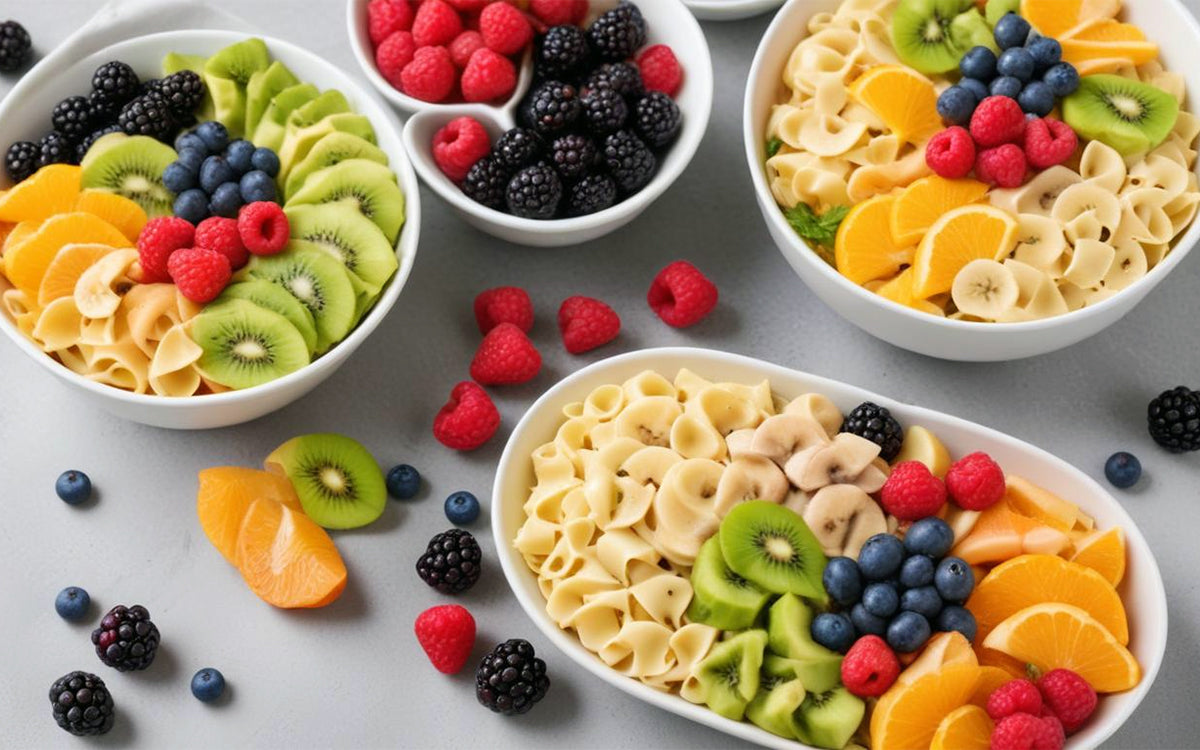
Best Fruits for a Healthier Gut and How to Make the Most of Them
Gut health plays a significant role in overall well-being, affecting digestion, the immune system, and even mood. A well-balanced diet rich in fiber content, fruits and vegetables, and other gut-friendly foods can contribute to a thriving digestive system. Among the many factors that influence gut health, fruits stand out as a great source of fiber, essential nutrients, and beneficial compounds that support the gut microbiome.
If you have ever wondered which fruits can support gut health including digestion and regular bowel movements, this guide will provide insights into the best choices. Plus, we will explore how to make the most of these fruits in daily meals to maximize their health benefits.
Why Fruits Matter for Gut Health
Fruits contain a variety of nutrients, including vitamins, minerals, and fiber, which contribute to a well-functioning digestive system. According to the Dietary Guidelines for Americans, consuming a variety of fruits and vegetables is key to maintaining a balanced diet. Fiber, in particular, plays a crucial role in digestion, supporting regular bowel movements and feeding beneficial gut bacteria.
Fruits provide both soluble and insoluble fiber, each serving a different function in digestion. Soluble fiber absorbs water and forms a gel-like consistency in the gut, slowing digestion and supporting the absorption of nutrients. Insoluble fiber, on the other hand, adds bulk to stool and helps food move through the digestive tract efficiently. Together, these fibers contribute to gut-friendly digestion and the production of short-chain fatty acids, which nourish the gut microbiome.
Top Fruits for Gut Health
- Apples
Apples are a great source of both soluble and insoluble fiber, making them excellent for digestion. They contain pectin, a type of soluble fiber that feeds beneficial gut bacteria and supports digestion. Enjoy them raw, baked, or blended into smoothies for a gut-friendly treat.
- Bananas
Bananas are high in fiber and rich in resistant starch, which helps maintain a balanced gut microbiome. They are gentle on the digestive system and can be easily incorporated into various meals, such as oatmeal, yogurt, or snacks.
- Berries (Blueberries, Raspberries, Blackberries, and Strawberries)
Berries are packed with fiber content and antioxidants, making them a gut-friendly choice. Their combination of soluble and insoluble fiber supports digestion and provides health benefits for the immune system. Enjoy them fresh, in smoothies, or as a topping for yogurt and salads.
- Citrus Fruits (Oranges, Grapefruits, Lemons, and Limes)
Citrus fruits are high in fiber and vitamin C, making them excellent for digestive and immune health. Their fiber content supports regular bowel movements, and their natural acidity aids digestion. Incorporate them into your diet through fresh juices, salads, or as a snack.
- Kiwi
Kiwi is a fantastic fruit for gut health, including digestion and nutrient absorption. It contains actinidin, an enzyme that supports protein digestion, along with fiber that helps with regular bowel movements. Eat it fresh or add it to smoothies and fruit salads.
- Papaya
Papaya is rich in digestive enzymes, including papain, which aids in breaking down the food. It is also a great source of fiber and helps maintain a well-functioning digestive system. Enjoy it fresh or blended into a smoothie.
- Pears
Pears contain a high amount of fiber, particularly insoluble fiber, which supports digestion and gut health. Their naturally high-water content also helps maintain hydration and supports smooth digestion.
- Prunes
Prunes are well known for their digestive benefits. They contain sorbitol, a natural sugar alcohol that aids in digestion, and are high in fiber, making them ideal for maintaining regular bowel movements.
How can you make the most of these gut friendly fruits? Here are a few tips:
- Variety is Key- Do not stick to just one or two fruits. A mix of different fruits provides a wider range of essential nutrients and fiber types, which supports a more diverse and healthy gut microbiome. Think of it as feeding the diverse community in your gut garden.
- Eat the Rainbow- Aim for a colorful variety of fruits and vegetables. Different colors often indicate different nutrients. The more colorful your plate, the better!
- Listen to Your Body- Pay attention to how your digestive system reacts to different fruits. Some people may be more sensitive to certain fruits than others.
- Include Fiber Throughout the Day- Do not just focus on fruit at one meal. Try to incorporate sources of fiber from fruits and vegetables at each meal and snack.
- Keep Yourself Hydrated – Fiber functions best when you drink enough water. Be sure to stay hydrated throughout the day.
- Consider Prebiotics- Prebiotics are non-digestible food ingredients that feed the good bacteria in your gut. Some fruits, like bananas and onions, contain prebiotics.
- Pay Attention to Portion Sizes – Fruits are nutritious but still contain calories. Sticking to recommended portions can help with healthy weight. The Dietary Guidelines for Americans provide useful recommendations on serving sizes.
- Focus on Whole Fruits- Whenever possible, choose whole fruits over juices. Whole fruits provide more fiber and are generally more nutritious.
- Incorporate into Meals- Add fruits to your breakfast cereal, yogurt, or salads. They can also be a great addition to smoothies.
- Snack Smart- Keep a variety of gut friendly fruits on hand for easy and healthy snacks.
Final Thoughts
Fruits are a powerful addition to a gut-friendly diet, providing essential nutrients, fiber, and compounds that support digestive health. Whether you enjoy them fresh, blended into smoothies, or added to meals, making fruits a regular part of your diet can support the gut microbiome and overall well-being.
By focusing on high-fiber fruits that offer both soluble and insoluble fiber, you can support a well-balanced digestive system while enjoying a variety of delicious flavors. Incorporate a mix of these gut-friendly fruits into your meals and experience the many health benefits they offer.